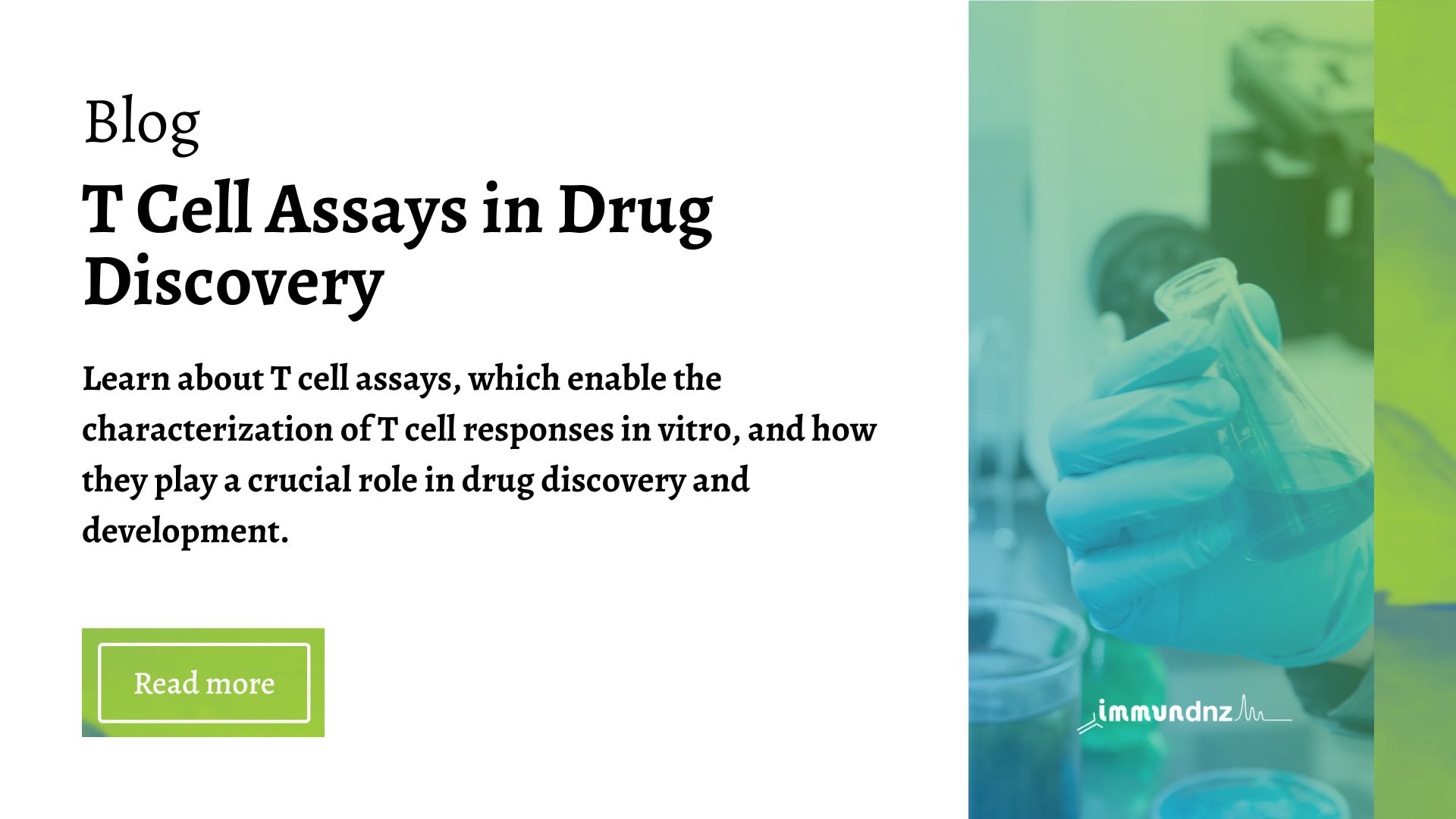T cells are central players in the adaptive immune system, orchestrating immune responses against pathogens, tumors, and other threats. Their ability to recognize specific antigens and coordinate diverse effector functions makes them attractive targets for therapeutic intervention. T cell assays, which enable the characterization of T cell responses in vitro, play a crucial role in drug discovery and development. This text will explore the significance of T cell assays in drug discovery, their applications, and the challenges and advancements in this field.
Understanding T Cells
Before delving into T cell assays, it’s essential to grasp the fundamental biology of T cells. T cells are a subset of lymphocytes that originate from the thymus and play diverse roles in immune surveillance and regulation. Upon encountering antigens presented by antigen-presenting cells (APCs), such as dendritic cells, T cells undergo activation, proliferation, and differentiation into effector or memory T cells.
Effector T cells, including cytotoxic T cells (CD8+) and helper T cells (CD4+), exert a wide range of effector functions, such as killing infected cells, secreting cytokines, and providing help to other immune cells. Memory T cells, on the other hand, persist long-term and confer immunological memory, enabling rapid and robust responses upon re-exposure to the same antigen.
T Cell Assays in Drug Discovery
T cell assays provide valuable insights into the dynamics of T cell activation, proliferation, and effector functions, serving as essential tools in drug discovery and development. These assays can be employed at various stages of the drug development pipeline, from target identification and validation to preclinical and clinical evaluation.
One of the primary applications of T cell assays is in immunomodulatory drug discovery. By assessing the impact of candidate compounds on T cell activation and function, researchers can identify novel immunomodulators with the potential to enhance or suppress immune responses. For example, compounds that promote T cell activation and proliferation may serve as adjuvants for vaccines or immunotherapies, whereas those that inhibit T cell activation could be explored as immunosuppressive agents for autoimmune diseases or transplant rejection.
Moreover, T cell assays play a crucial role in the development of cancer immunotherapies. Strategies such as adoptive T cell therapy and immune checkpoint blockade aim to harness the patient’s own T cells to target and eliminate cancer cells. T cell assays can be used to evaluate the anti-tumor activity of engineered T cells, assess their specificity and cytotoxicity against tumor cells, and monitor immune responses in patients receiving immunotherapy.
Furthermore, T cell assays are instrumental in vaccine development, particularly for infectious diseases and cancer. By mimicking the interaction between T cells and antigens, these assays enable researchers to evaluate the immunogenicity of vaccine candidates and optimize their formulation for enhanced efficacy. For instance, T cell-based assays can be used to measure antigen-specific T cell responses, assess the magnitude and quality of immune memory, and predict vaccine efficacy in clinical trials.
Challenges and Advancements
Despite their utility, T cell assays present several challenges that must be addressed to enhance their reliability and relevance in drug discovery. One challenge is the diversity and plasticity of T cell subsets, which can influence assay outcomes and interpretation. Standardization of culture conditions, phenotypic markers, and functional readouts is essential to ensure consistency across experiments and facilitate comparisons between studies.
Another challenge is the complexity of T cell signaling pathways and effector functions. High-throughput screening technologies and systems biology approaches offer promising avenues for dissecting these intricate networks and identifying novel drug targets. Additionally, the development of engineered T cell platforms, such as chimeric antigen receptor (CAR) T cells, has revolutionized cancer immunotherapy by enabling the precise targeting of tumor antigens and enhancing T cell-mediated cytotoxicity.
Advancements in imaging and single-cell analysis techniques have also revolutionized T cell research, allowing for real-time visualization and characterization of T cell dynamics in vivo. These technologies provide insights into the spatiotemporal regulation of T cell activation and function within the context of the immune microenvironment, informing the design of more effective immunotherapies.
Furthermore, the integration of computational modeling and artificial intelligence algorithms holds the potential to accelerate drug discovery by predicting the effects of candidate compounds on T cell behavior and immune responses. By leveraging large-scale omics data and machine learning algorithms, researchers can identify molecular signatures associated with T cell activation or dysfunction, facilitating the identification of novel drug targets and biomarkers.
Conclusion
In conclusion, T cell assays represent indispensable tools in drug discovery, offering insights into immune modulation, vaccine development, and cancer immunotherapy. By elucidating the complex interactions between T cells and potential therapeutic agents, these assays enable researchers to identify novel immunomodulators, optimize vaccine formulations, and develop more effective cancer therapies. Despite challenges such as diversity and complexity, ongoing advancements in technology and computational modeling hold the promise of overcoming these obstacles and unlocking new opportunities for leveraging T cells in the fight against disease.


